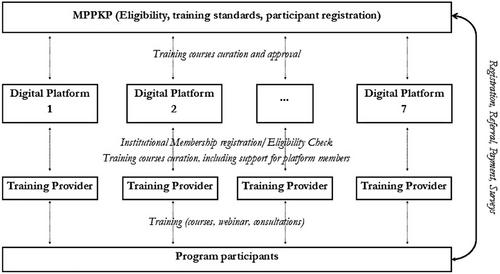Activation through welfare conditionality and marketisation in active labour market policies: Evidence from Indonesia
Abstract
Regardless of their prevalence and considerable expansion since the 1980s, evidence concerning the impact of welfare conditionality and marketisation in active labour market policies (ALMPs) has been inconclusive and mostly limited to developed and transition economies. Using mixed methods for collecting and analysing data, this study investigates the deployment of these two policy instruments in the latest addition to the stock of ALMPs: the Kartu Prakerja Program of Indonesia. Our findings indicate positive effects derived from such incorporation of the two instruments in this new program. Specifically, we observed a high level of jobseekers’ engagement and employment outcomes. The program also shaped the development of a provider market that is of higher standard of professionalism. It, however, is not exempt from problems that seem to be of perennial nature in other welfare-to-work programs, pointing to the need for greater service tailoring and provider engagement. Impressively, the program represents an example of a genuine policy learning in both policy formulation and re-formulation during the time of crisis, given that it has been run successfully, along with various adaptions quickly made in response to changing circumstances.
Points for practitioners
- Welfare conditionality and marketisation in the delivery of publicly funded employment services have been two key features of many welfare regimes. However, evidence concerning their impact is still inconclusive and especially lacking in a developing country context.
- There exist similarities in the impacts of these two policy instruments across country contexts. Notably, national factors such as economy informality and culture are critical to interpret and understand their impacts.
- Coupled with genuine policy learning in both policy formulation and re-formulation, successful innovations during a time of crisis are possible.


 求助内容:
求助内容: 应助结果提醒方式:
应助结果提醒方式:


